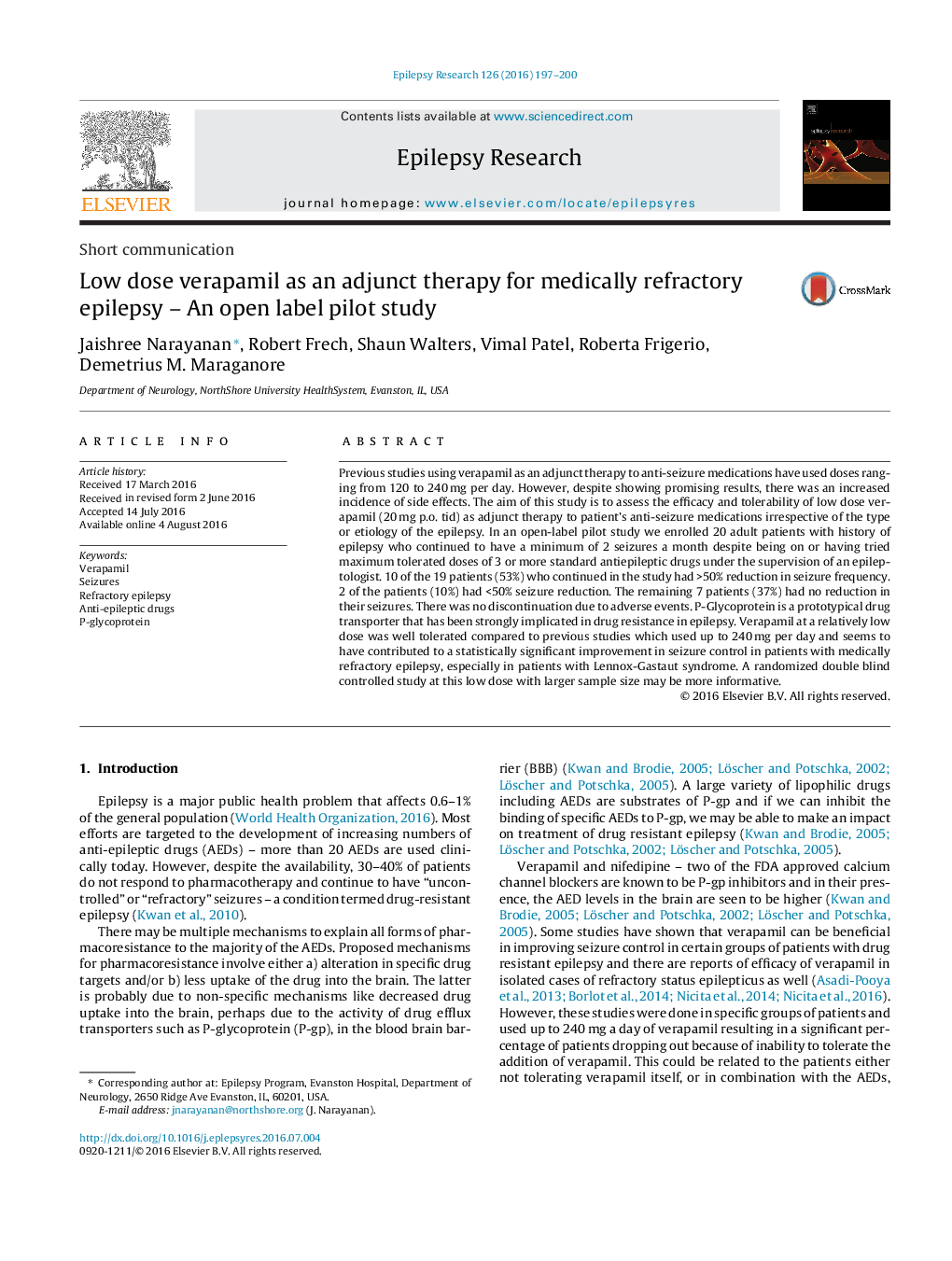| Article ID | Journal | Published Year | Pages | File Type |
|---|---|---|---|---|
| 6015165 | Epilepsy Research | 2016 | 4 Pages |
Abstract
Previous studies using verapamil as an adjunct therapy to anti-seizure medications have used doses ranging from 120 to 240Â mg per day. However, despite showing promising results, there was an increased incidence of side effects. The aim of this study is to assess the efficacy and tolerability of low dose verapamil (20Â mg p.o. tid) as adjunct therapy to patient's anti-seizure medications irrespective of the type or etiology of the epilepsy. In an open-label pilot study we enrolled 20 adult patients with history of epilepsy who continued to have a minimum of 2 seizures a month despite being on or having tried maximum tolerated doses of 3 or more standard antiepileptic drugs under the supervision of an epileptologist. 10 of the 19 patients (53%) who continued in the study had >50% reduction in seizure frequency. 2 of the patients (10%) had <50% seizure reduction. The remaining 7 patients (37%) had no reduction in their seizures. There was no discontinuation due to adverse events. P-Glycoprotein is a prototypical drug transporter that has been strongly implicated in drug resistance in epilepsy. Verapamil at a relatively low dose was well tolerated compared to previous studies which used up to 240Â mg per day and seems to have contributed to a statistically significant improvement in seizure control in patients with medically refractory epilepsy, especially in patients with Lennox-Gastaut syndrome. A randomized double blind controlled study at this low dose with larger sample size may be more informative.
Related Topics
Life Sciences
Neuroscience
Neurology
Authors
Jaishree Narayanan, Robert Frech, Shaun Walters, Vimal Patel, Roberta Frigerio, Demetrius M. Maraganore,
